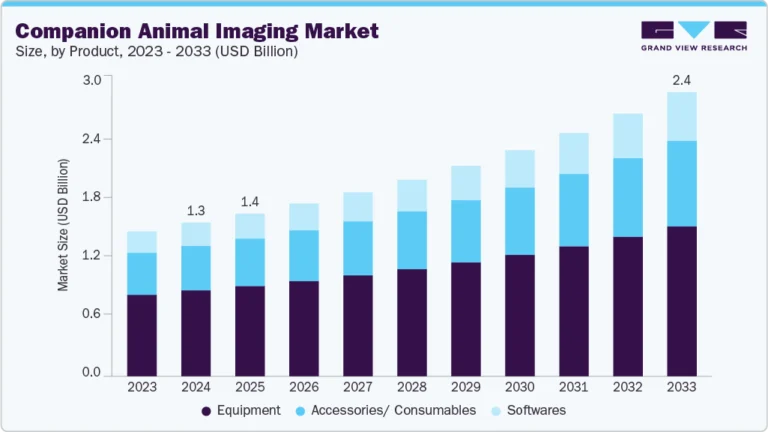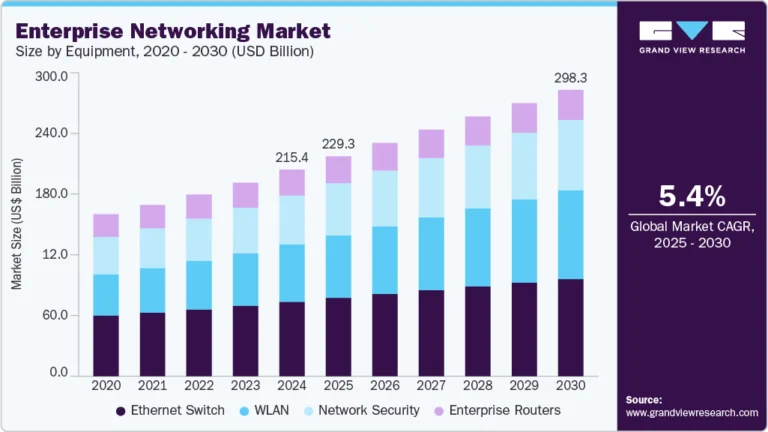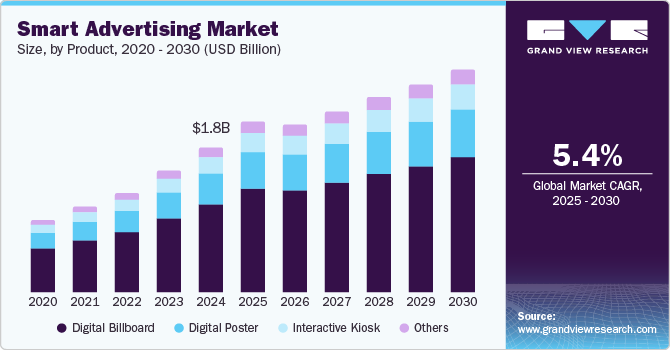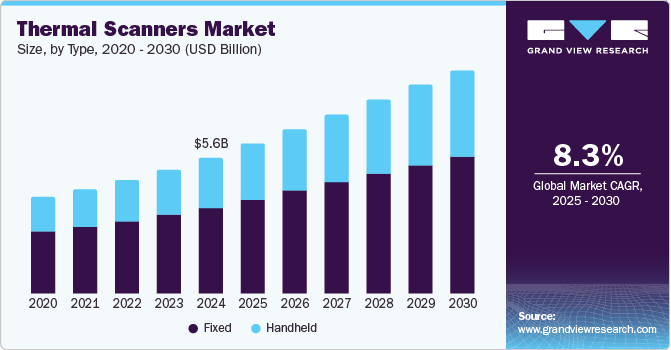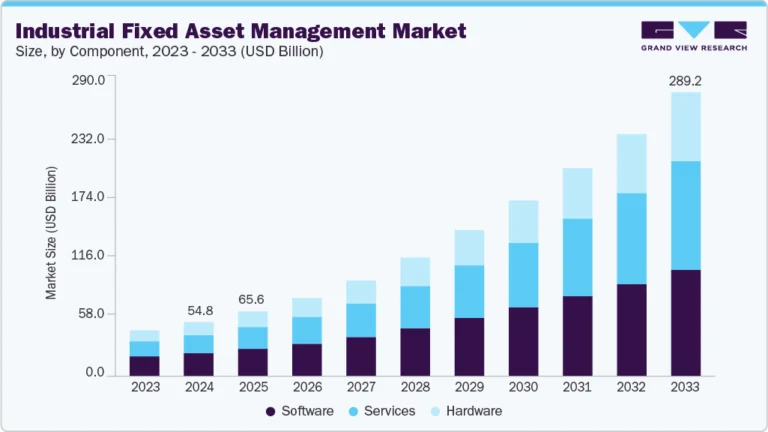Digital Security Control Market Size, Share & Trends Analysis growing at a CAGR of 9.6% from 2025 to 2033

The global digital security control market size was estimated at USD 16,463.2 million in 2024 and is projected to reach USD 38,278.7 million by 2033, growing at a CAGR of 9.6% from 2025 to 2033. The digital security control market is growing due to the rising adoption of biometric authentication.
Key Market Trends & Insights
- The North America digital security control market held the dominant position with a revenue share of 32.2% in 2024.
- The digital security control market in the U.S. is expected to grow significantly over the forecast period.
- By hardware, biometric technologies led the market and held the largest revenue share of 34.6% in 2024.
- By technology, the two-factor authentication segment held the dominant position in the market and accounted for the largest revenue share of 58.4% in 2024.
- By application, the user authentication segment held the dominant position in the market and accounted for the largest revenue share of 34.3% in 2024.
Market Size & Forecast
- 2024 Market Size: USD 16,463.2 Million
- 2033 Projected Market Size: USD 38,278.7 Million
- CAGR (2025-2033): 9.6%
- North America: Largest market in 2024
- Asia Pacific: Fastest growing market
Request a free sample copy or view report summary: https://www.grandviewresearch.com/industry-analysis/digital-security-control-market-report/request/rs1
Technologies such as fingerprint, facial, and iris recognition are being widely implemented across access control systems. This shift is driven by the need for stronger, more seamless authentication, boosting demand across sectors.
The digital security market is experiencing growth through the integration of advanced technologies. Companies are increasingly adopting AI and IT services to improve security capabilities. This includes enhanced identity verification and secure transaction processing. Advanced solutions are also being used to protect sensitive data more effectively. Such developments are contributing to the overall expansion of the market. As threats become more complex, organizations are prioritizing smarter, more adaptive security frameworks. For instance, in June 2024, Entrust Corporation, a U.S.-based software company, collaborated with Wipro to enhance its digital security offerings. Through this strategic collaboration, Wipro is providing AI and IT services to support Entrust’s expansion in identity, payment, and data protection solutions.
The adoption of integrated biometric authentication solutions supports the growth of the digital security control market. These technologies improve identity verification accuracy and reduce the chances of unauthorized access. Combining modalities such as fingerprint, facial, and voice recognition enhances overall system reliability. This builds greater trust in digital platforms used in sectors such as banking, healthcare, and corporate services.
Traditional security methods are being replaced as organizations seek more robust authentication frameworks. Increased focus on secure access is accelerating investments in advanced biometric systems. In January 2025, Fingerprint Cards AB, a Swedish biometrics company, collaborated with jNet Secure to develop a turnkey biometric System-in-Package (SiP) module for secure digital authentication. This collaboration targets sectors such as enterprise access, financial services, and government ID by offering a password-less, cryptography-based solution that simplifies integration and accelerates adoption.

